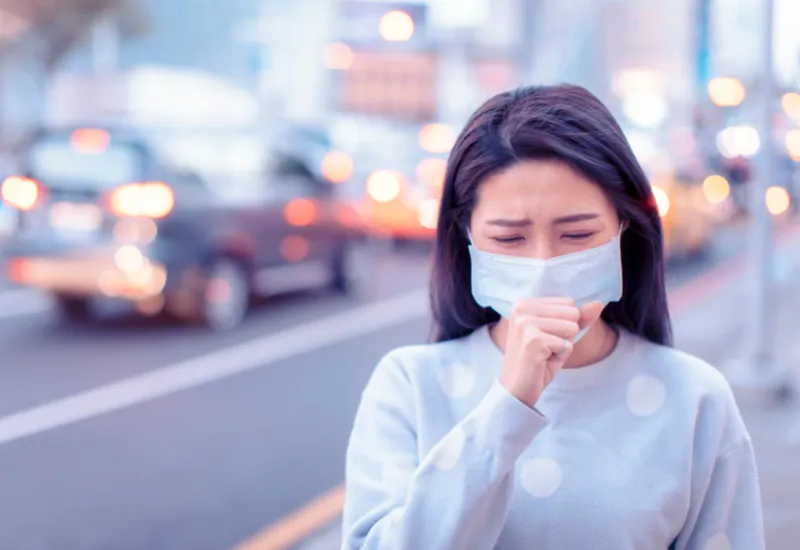Air pollution is a global issue these days. It does affect not only our environment but also has numerous adverse effects on our health. Multiple factors contribute to air pollution. Some of the major causes are fuel emissions from cars, planes, industries, smoking, volcanoes, wildfires, etc. The majority of the reasons that contribute to air pollution are man-made. Therefore air pollution is frequently observed in cities with dense populations.
What Are The Effects of Air Pollution on Human Health?
Air pollution can affect your health in multiple ways. The primary effect of air pollution can be noticed on the lungs. Irritants enter your respiratory tract and trigger your immune response. If you are already sensitive or allergic to specific substances, air pollution can exacerbate the symptoms of that condition.
Air pollution can have immediate effects on healthy individuals. In contrast, long-term exposure to air pollution can permanently affect a person’s overall health.
Short-term effects of air pollution include coughing, sneezing, irritation of eyes, nose, skin, etc. Pollutants in the air may also cause headaches or dizziness, which may be aggravated in intense sunlight. You may develop short-term illnesses such as bronchitis or pneumonia. Children, elders, and individuals with low immunity are at higher risk. Smells released from waste products are also considered a part of air pollution. These smells may feel unpleasant and may disturb the quality of your professional or living environment.
The long-term effects of air pollution can worsen your quality of life. It majorly affects your respiratory and cardiovascular systems, but other body systems may also be affected. If exposed to air pollution for several years, it may increase the risk of chronic respiratory diseases such as emphysema, chronic obstructive pulmonary disease, asthma, etc. Irritants in the air also increase the risk of lung cancer, particularly those released from second-hand smoking. Overall efficiency and volume of the lungs decrease over time. The risk of heart-related diseases increases due to irregular oxygen supply. The mortality rate increases as the quality of their lifespan decrease over the years.
Who Are At High Risk?
Certain groups of people are more prone to suffer from air pollution-related effects on general health. High-risk individuals include the following:
-
Children and elders: Infants, young children, and aged adults are at higher risk of respiratory diseases due to air pollution. This is because their immunity is lesser compared to young adults.
-
Outdoor workers: Air pollution is a major health hazard for those who have to work outdoors. This includes civil engineers, traffic police, outdoor vendors, etc. This also includes athletes and sportspeople who practice outdoors for long hours.
-
Pregnant women: Air pollution can affect the mother and her developing child. Some studies have indicated that particulate matter in the air may cause some disturbances in a child’s normal growth and development.
-
Pre-existing medical conditions: Those with a pre-existing respiratory (asthma, emphysema, lung cancer, etc.) or heart conditions (heart attack, coronary artery disease, etc.) are at a higher risk. Their condition may get triggered or aggravated by air pollution.
-
Low immunity: Diseases (HIV, SLE, etc.), medications (corticosteroids), or procedures (chemotherapy, radiotherapy) that lessen immunity can increase the risk of other diseases caused by air pollutants.
How Can You Prevent Effects of Air Pollution?
Certain preventive measures can be taken on an individual level to avoid air pollution's adverse effects. These include wearing a mask outside, staying indoors as much as possible, and avoiding places with a higher number of air pollutants. Outdoor workers should be given special precautions to reduce the risk of respiratory and other diseases.
Installation of indoor air filters can be beneficial to purify outdoor to indoor air. This is especially recommended in places with children, older adults, or immunocompromised patients. If you have any pre-existing medical condition, take precautions before going outside. It is better to avoid living near industrial areas or places with high traffic.
If you develop any severe effects due to air pollution, it is suggested to consult a healthcare expert so it can be treated before further complications. Visit cura4u for more information about medical conditions, diagnostic tests, and online consultation. Register yourself and your loved ones today for optimum healthcare services!











